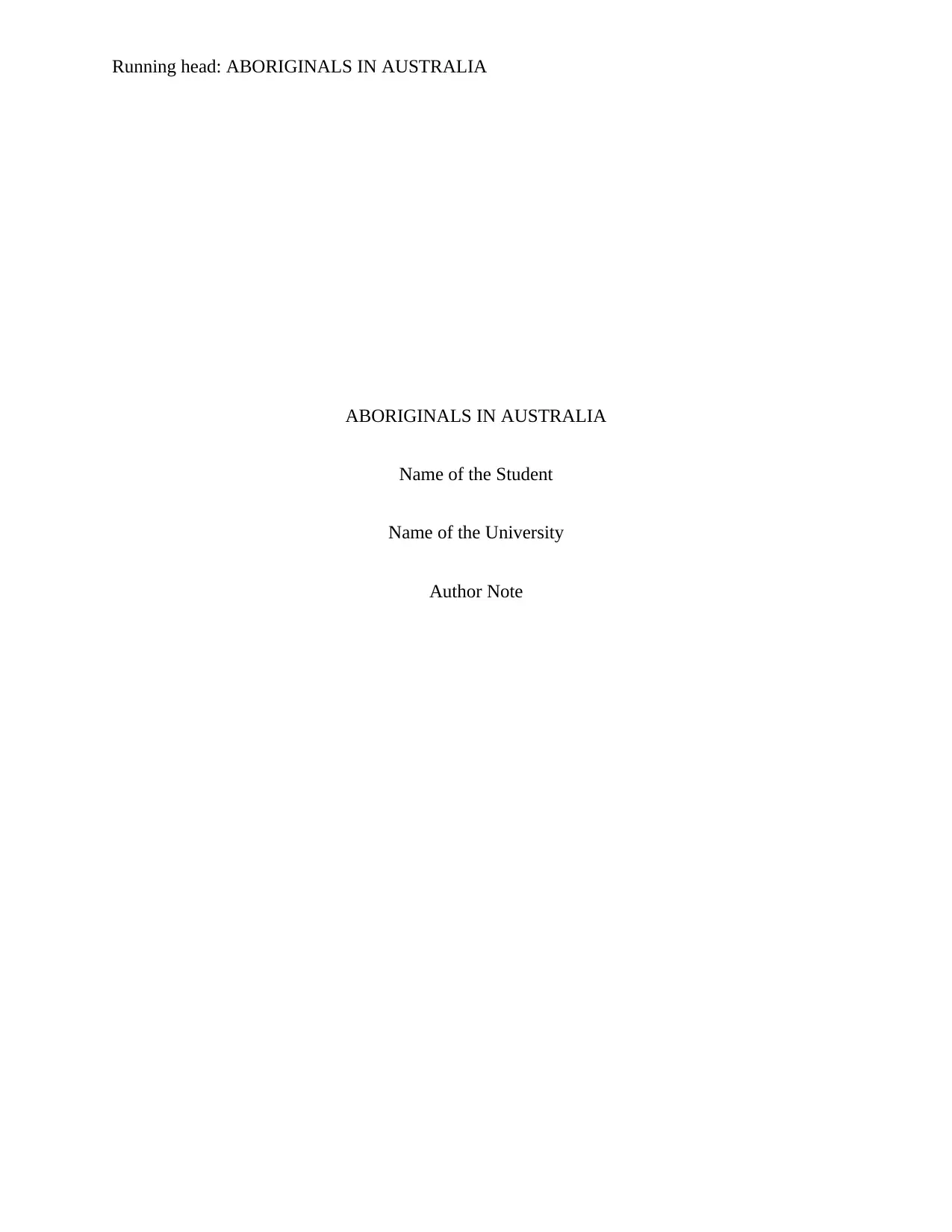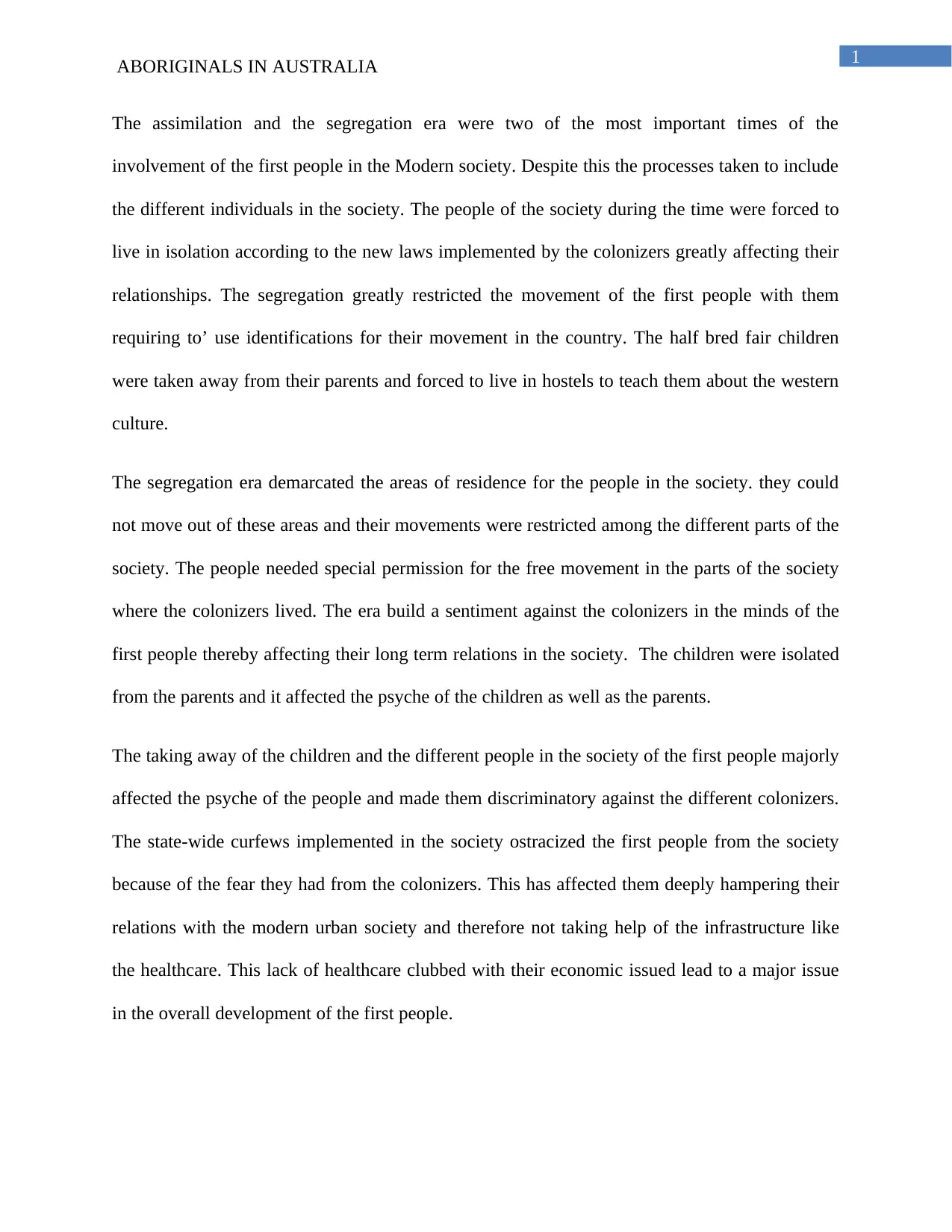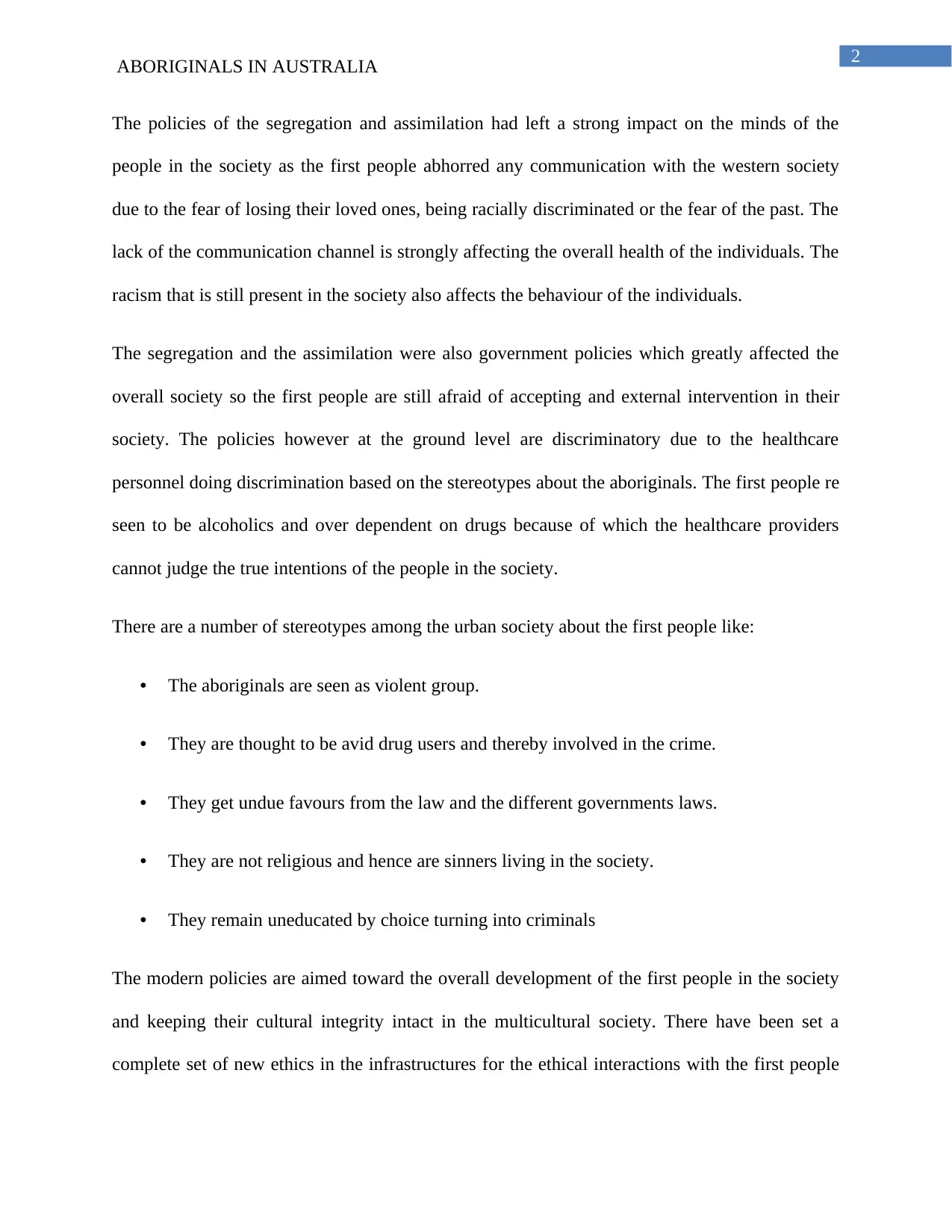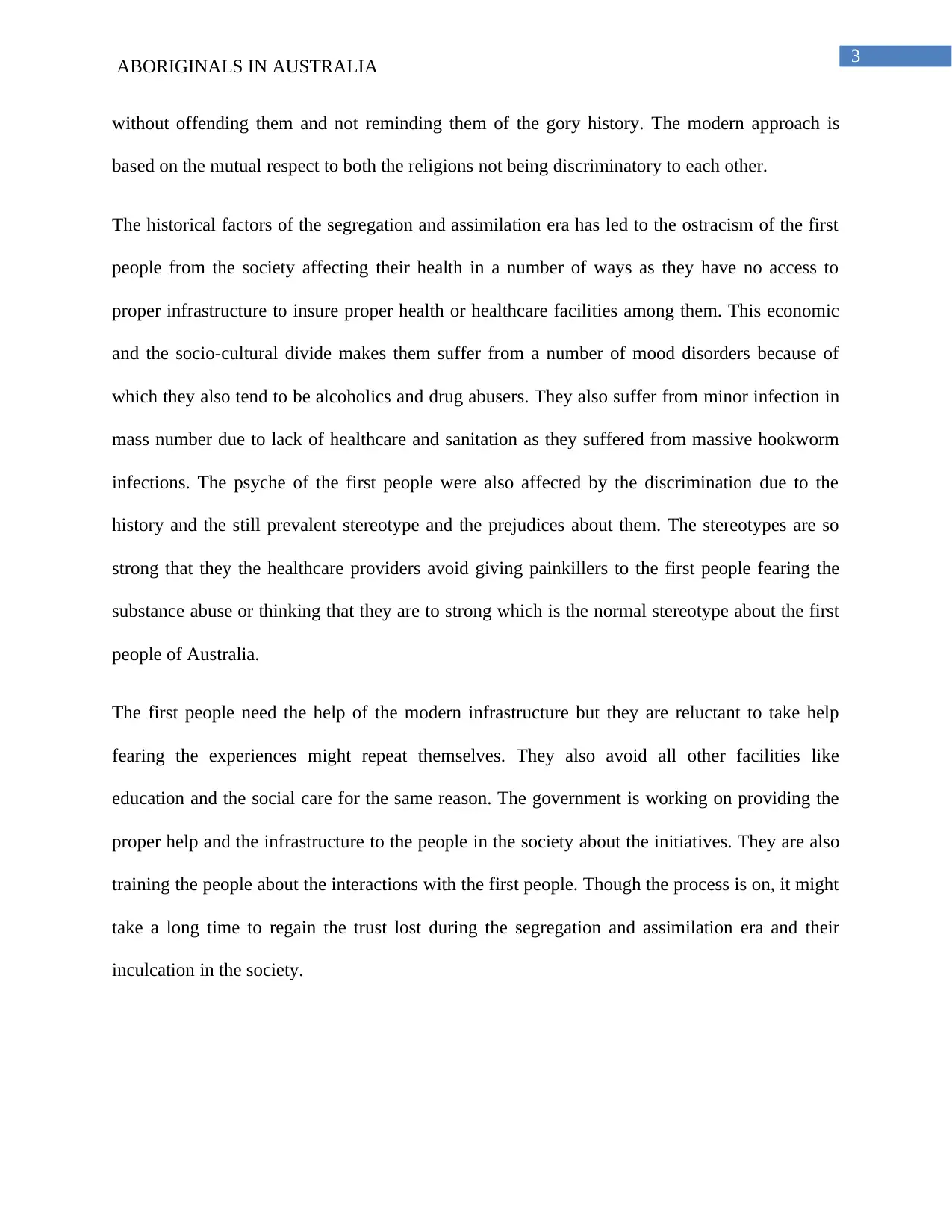Contemporary Health Impacts of Assimilation and Segregation Policies
VerifiedAdded on 2023/06/10
|5
|961
|192
Presentation
AI Summary
This presentation critically analyzes the impact of historical policies, specifically assimilation and segregation, on the health outcomes of Aboriginal Australians. It examines how these policies have shaped contemporary health challenges, including limited access to healthcare, economic disparities, and the prevalence of mood disorders and substance abuse. The presentation highlights the long-term effects of these policies on the mental and physical well-being of Aboriginal communities, emphasizing the importance of understanding the historical context to build trustful and respectful relationships between First Peoples and healthcare professionals. It explores the role of stereotypes and prejudices in healthcare settings, the reluctance of Aboriginal people to seek assistance, and the need for culturally sensitive approaches to address health inequalities. The presentation also discusses the ongoing efforts by the government to improve infrastructure and interactions with Aboriginal communities and the importance of addressing the lasting impacts of past policies to ensure equitable healthcare access and improved health outcomes. The presentation emphasizes the need for health professionals to understand the historical context and develop culturally sensitive approaches to foster trust and respect within the healthcare system.
1 out of 5












![[object Object]](/_next/static/media/star-bottom.7253800d.svg)